Sauvignon Blanc
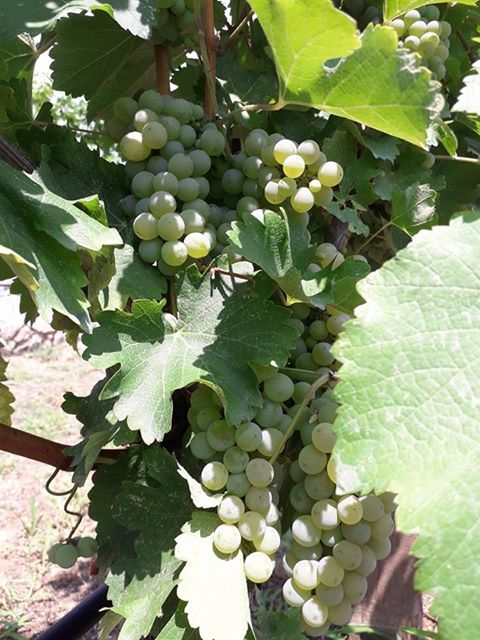
"Perhaps someone believed that the cosmopolitan White Sauvignon Blanc variety would find the climate of Greece very hot to thrive. However, not only was it perfectly acclaimed, but also constitutes the basic variety behind the country's most well-sold dry white wines. This should not be so surprising, since in Greece Sauvignon Blanc generously spreads what is most famous about throughout the world: aroma, freshness and its incomparably crispy character. Planted in the coldest vineyard parts of northern and central Greece, as well as Peloponnese, it exploits all the means of modern winemaking that the wineries use in order to preserve and/or intensify the aroma and nerve of this specific variety. Pre-enzymatic extractions, low temperature fermentation and selected wine doughs are extensively used to magnify the unique character of Greek vineyards. Thus, its typical aromas of citrus, grapefruit and green raspberry - which can be found here in mature form - are complemented by notes of melon and unripe white fruit. As far as the mouth of Greek Sauvignon Blanc wines is concerned, it remains crispy, light and refreshing, without being aggressive. Either alone or as a predominant component of white blends, it impresses wine-lovers from the first sip. With its directness and playful character, it has become a favorite choice. "
Syrah
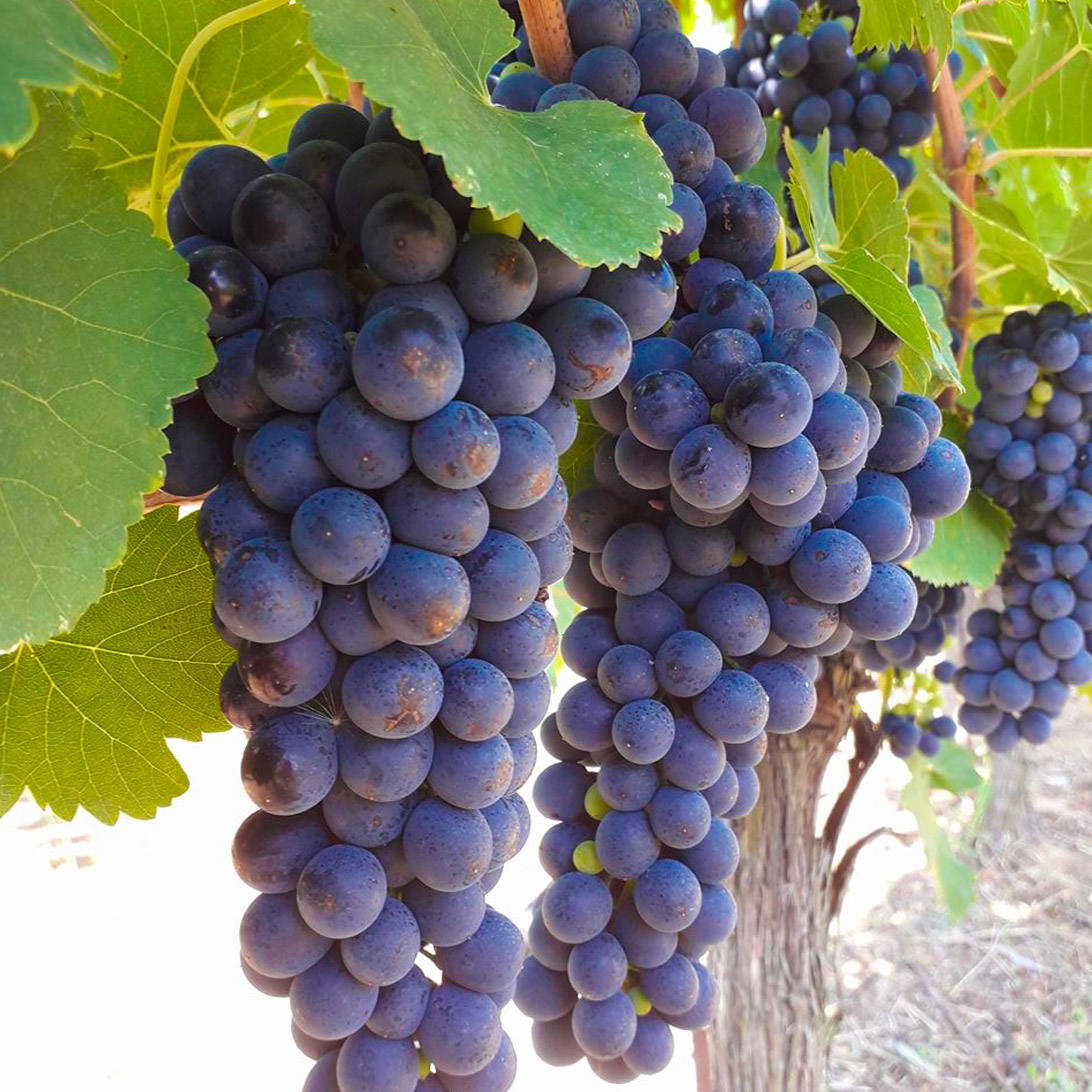
"When the Syrah made its first steps in the Greek vineyard in the early 1990s, nobody could imagine it would become the big star of international red varieties. Its small, dark-colored berries gleefully absorb the sun of Greek land turning it into red dynamites that have created a global sensation, achieving countless distinctions in major international competitions. Its spread among almost all Greek areas is so big that it would be impossible to successfully analyze the character of each individual Greek vineyard variety. However, the almost black color, the dense aromas of black fruits, licorice and chocolate, as well as the exuberant, fleshy and sweet mouth, are common places for most Greek Syrah wines. Being the flagship of the winemakers, it is reasonable to enjoy all the privileges of “premium” wines, such as small productions, low yields per vineyard, sorting by vintage, top quality barrels, etc. However, the Syrah wines are also rewarding these cares. Less sweet than the Australian ones, more sophisticated than those in South Africa and more stealthy than the "cousins" of Rodanos, the Greek Syrah offers excellent performance that every serious wine-lover should taste. This great red variety has not only found in Greek land an ideal environment, giving excellent results, but also it constitutes the red spear of the modern Greek wine's specimen in terms of international red varieties. Therefore, it is both a pleasure and a lesson for those who want to expand their fragrant and taste pallet and improve themselves as gourmets."
Merlot
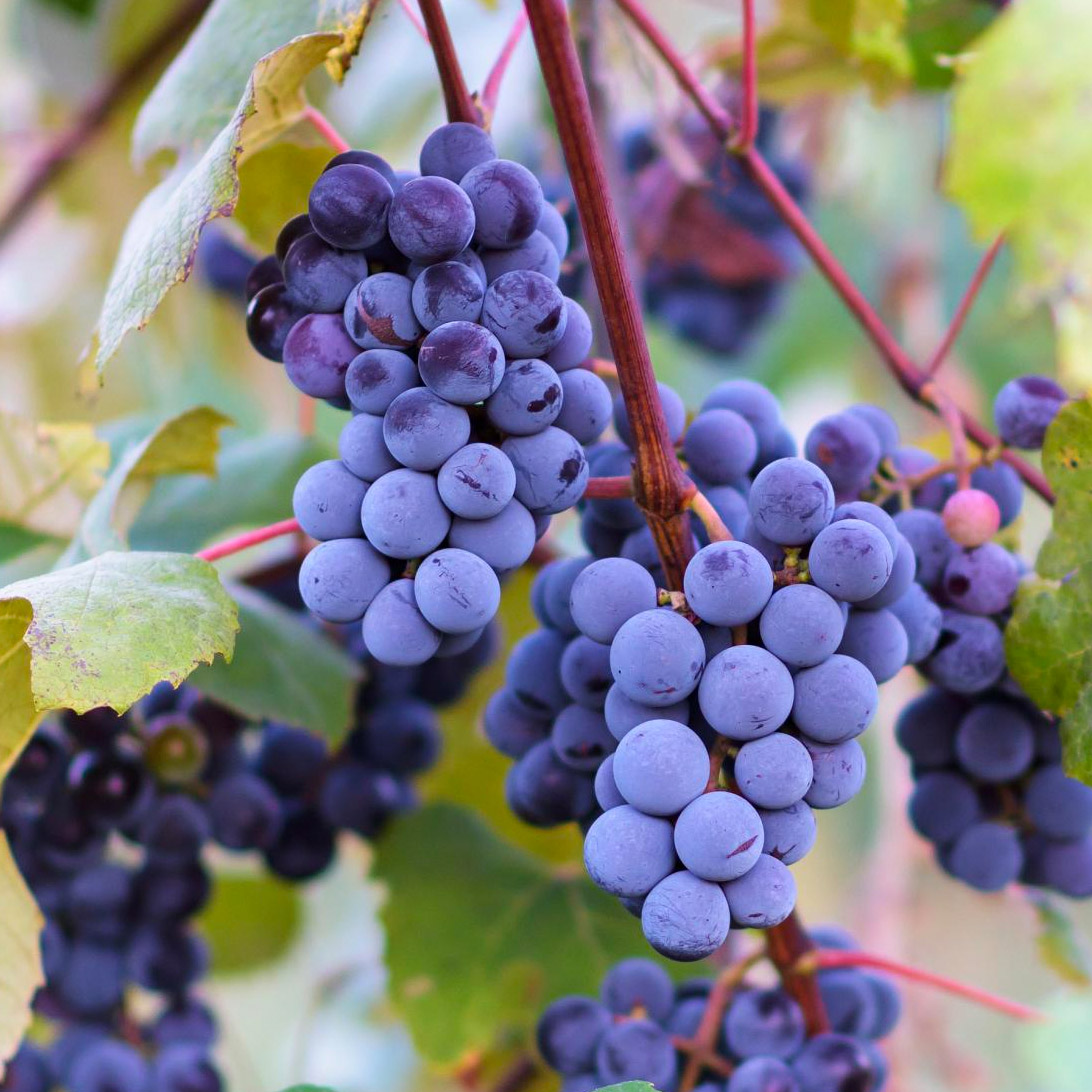
"One of the world's most famous varieties, Merlot has found its way into the Greek lands and has a prominent place not only by giving a multitude of unicellular red dry wines, but also by participating in numerous Greek wine blends. Thus, Merlot undertakes to soften the harsh character of varieties, such as Cabernet Sauvignon or Xinomavro. Placed almost everywhere in the mainland and the islands – mainly located in central Macedonia, central Greece and the Peloponnese - Merlot does not hide its preference for the heavy, loamy soils and the moisture they contain. In Greece, Merlot is expressed with aromas of black ripe fruit along with sweet balsamic notes, as well as a soft, easy-to-drink flavor. Its fleshy, sweet presence guarantees fun and joy, enchanting not only the wine-lovers, but also anyone who would like to taste this Greek wine or wine from this variety. Outstanding, direct and extrovert, Greek Merlot perfectly reflects the new face of Greek wine, getting at the first sit a place in the heart of every new wine-lover. But while expressing the uniqueness of Greek vineyards, it offers a new perspective of this variety with interest to the demanding world vineyard connoisseurs."
Assyrtiko
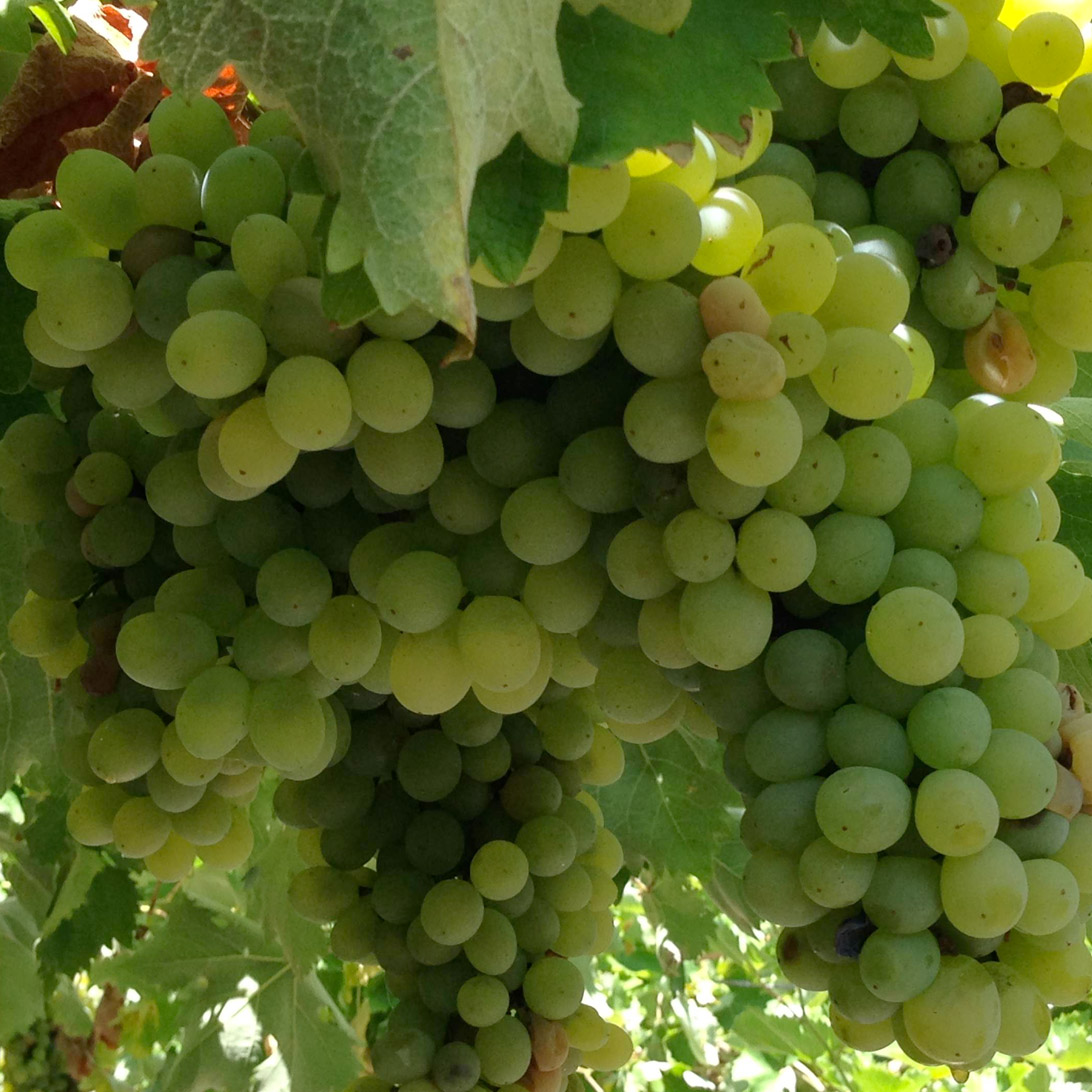
"Asyrtiko is a rare white variety of world class and one of the most important varieties found in the Mediterranean basin. It comes from Santorini, but it has been spread throughout Greece and has become, in terms of quality, one of the most important native varieties. It mainly gives white dry wines, some of which ripen in a barrel. Asyrtiko is one of these rare white vine varieties that can be grown both in warm and dry climates, maintaining a high sugar content (potential alcohol), in perfect balance with its vivid acidity. It is a variety that focuses on the structure, the extract and the flavor, and less on the aromatic character. It has been planted in most Greek vineyards, from the islands of the Aegean Sea to Macedonia (PDO Meliton Plagias), central Greece and the Peloponnese. In these areas, Asyrtiko maintains its fresh and mineral character, but it presents stronger primary fruit aromas and less dense structure. "
Malagouzia
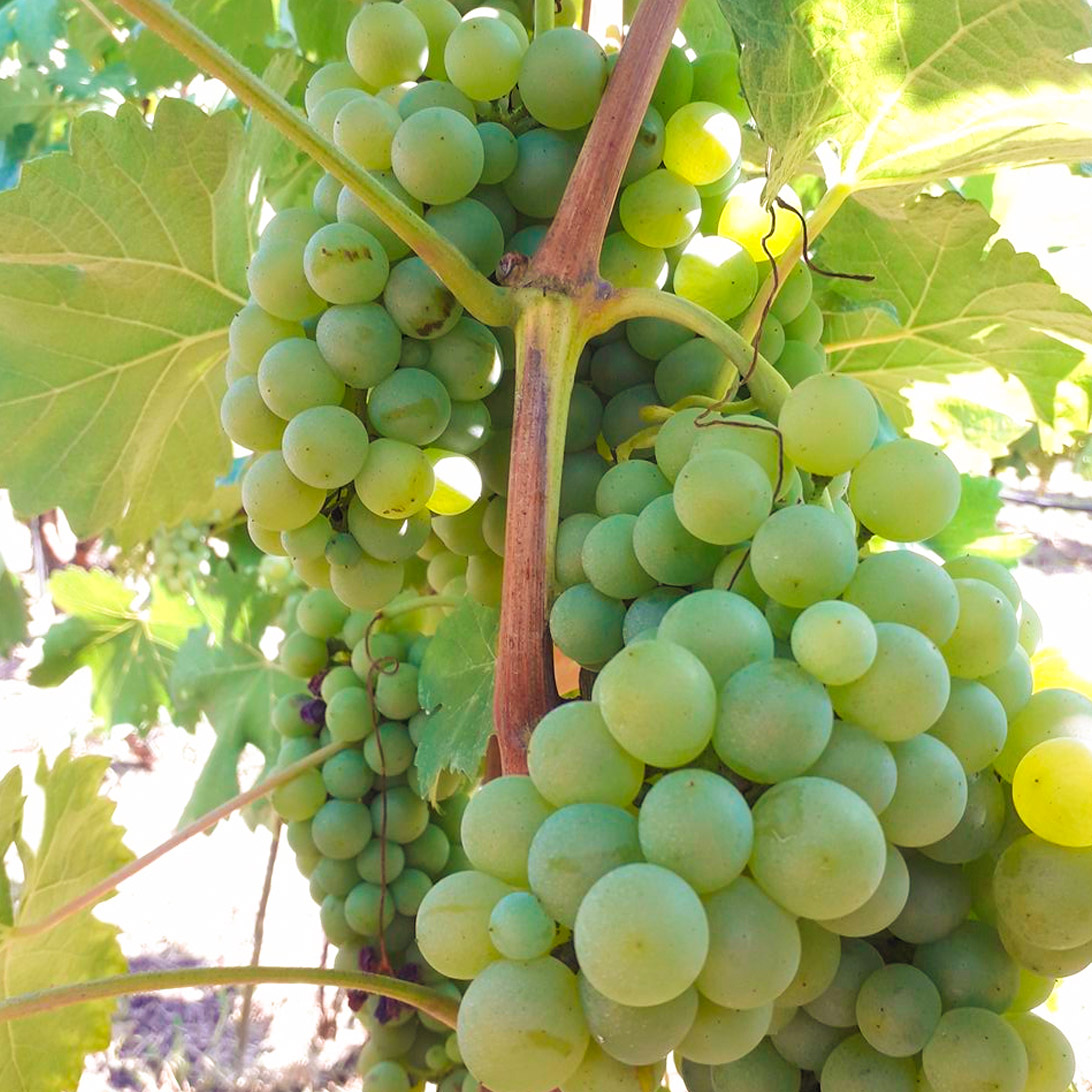
"Malagouzia could be described as the quintessence-variety of the Renaissance that modern Greek wines have made, as has been the case for the last twenty years. It is the formation of the way in which Greek wine producers re-discover their potential. In the 1970s, this variety was considered extinct and few knew it. Today, after hard work of university professors, top cultivators and oenologists, Malagousia is widely regarded as a world-wide grape that gives exquisite dry white wines, as well as some amazing sweet ones. It gives wines with medium soft green-yellowish color and very intense, extremely expressive nose, with peach, green pepper, basil and flower hints. In the mouth, the wine is round, full, but always fresh, with moderately high alcohol levels. The west side of central Greece (Aitoloakarnania) is considered to be the origin of this variety. It was mainly known there for the production of sweet wines. Modern crops have re-appeared in Halkidiki vineyards, while there are many producers that cultivate Malagouzia in numerous other vineyards in Greece. Below the imposing rocks of Meteora, Malagouzia has found a special field of expression. Thus Meteora region gives us wines of Protected Geographical Indication. It is an extremely successful vine variety with great recognition. The wines from this area are representative samples of aromatic white wines, full of vitality and complexity. The dry ones ideally accompany vegetables and generally salads, even artichokes, known for their difficulty in wine combination."
Moschato Hamburg
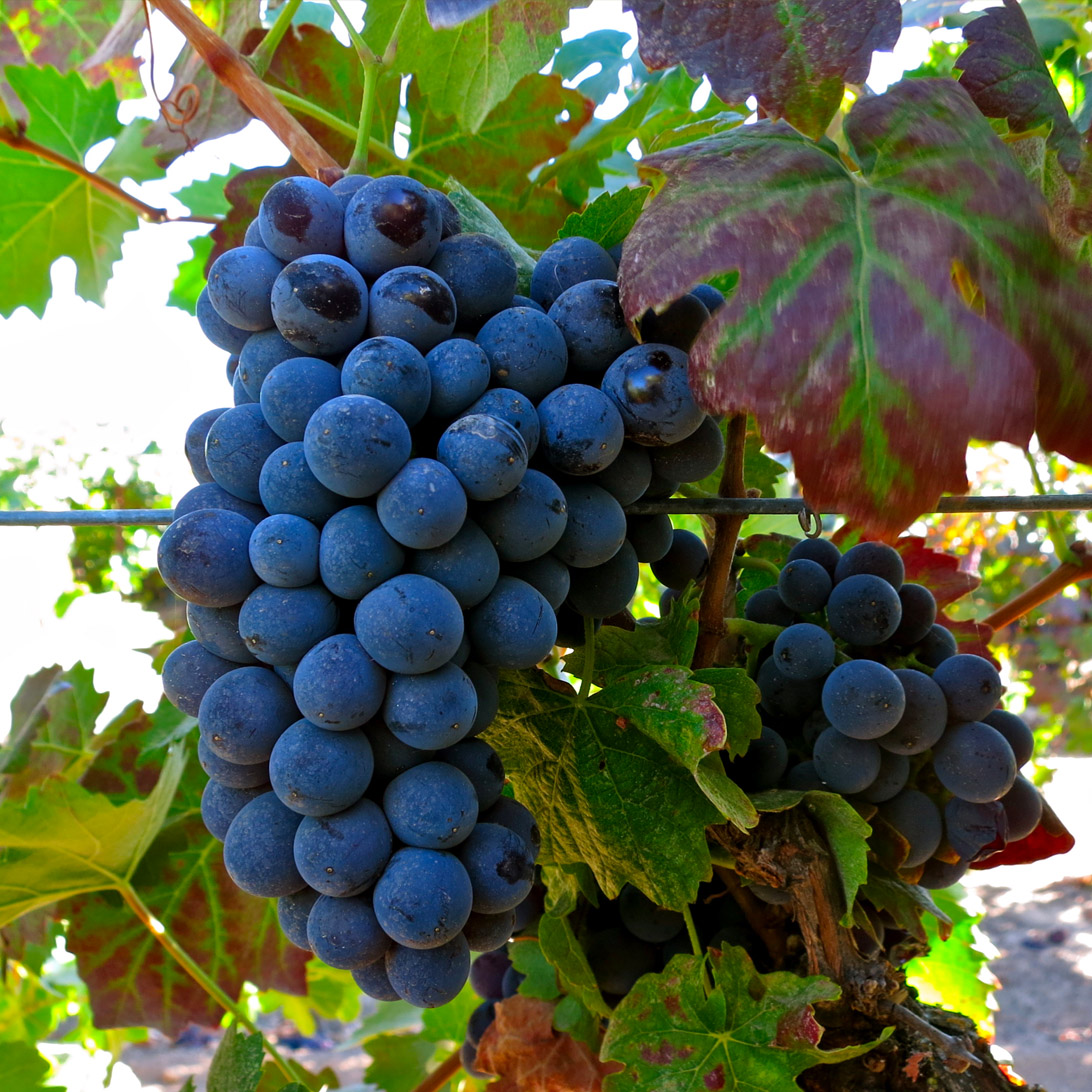
"Unique at the various moschato types, Moschato Hamburg stands out from its reddish berries. It is one of the few varieties that are vinified and also consumed as table ones, because it has a delicious grape, ready to enchant everyone with its aroma, but also to participate in red, rosé and sweet wines. Moschato Hamburg can be found in the vineyard of central Greece. Its explosive and sweet aromas, reminiscent of carnations, are the great trumps of this particular variety. Thus, while the low acidity and soft tannins of Moschato Hamburg do not easily allow it to stand alone for the production of unicellular wines, its addition to blends is miraculous. A small amount is enough to resurrect even the most aromatically dull wine.
Xinomavro
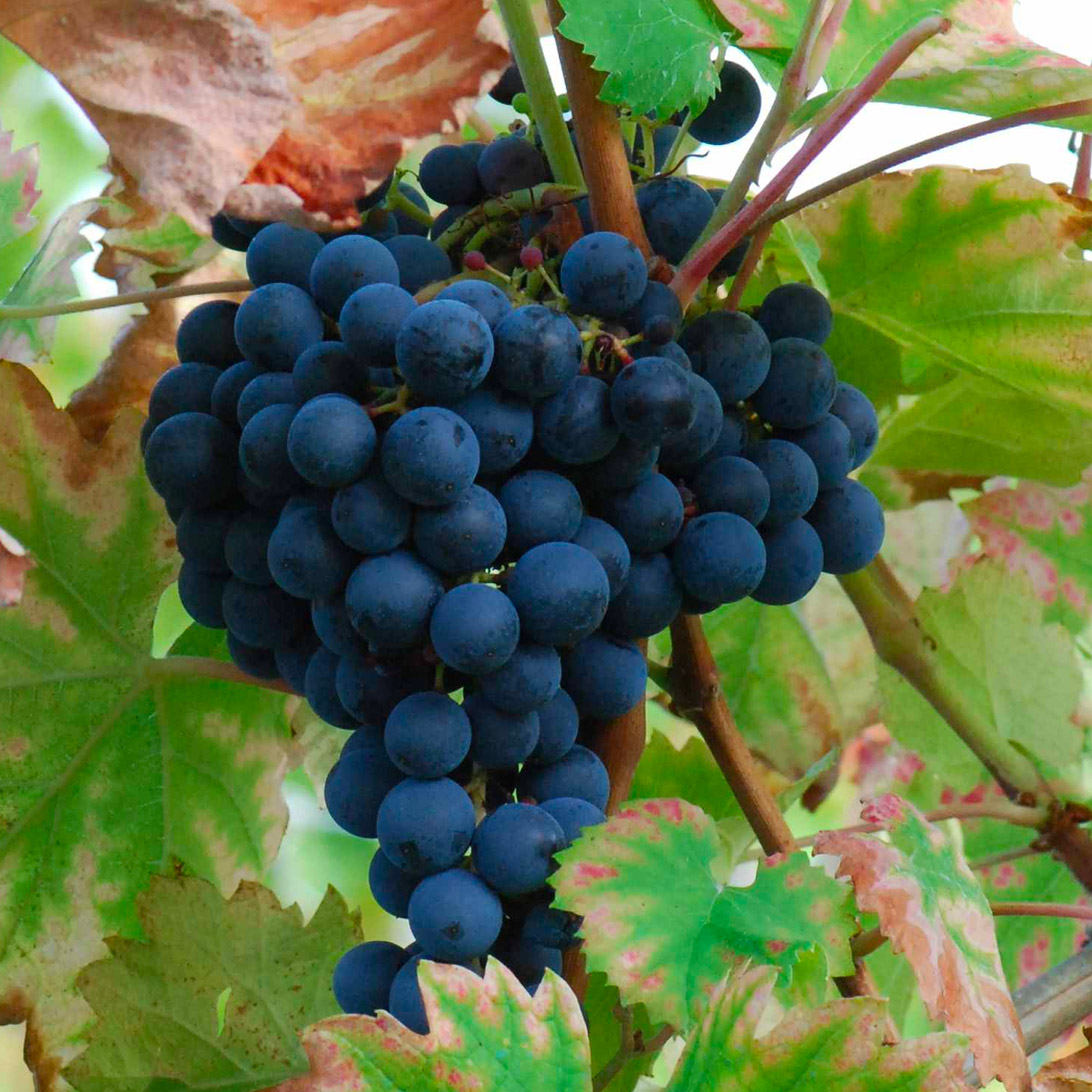
"Its name -Xinomavro- comes from sour (xino) and black (mavro), but, in practice, the peels of its berries are not particularly rich in dyes. However, Xinomavro surprises us with its performance and its multipurpose character, offering "vin de garde" red, dynamic rosé, aromatic sparkling and even idiosyncratic sweet wines. It is planted in every corner of central and northern Greece. "Wayward" and demanding, Xinomavro needs adequate terroir, increased cultivation care, low yields per hectare and appropriate weather conditions, in order to unfold its grandeur. But then it reminds us of the great variety of Piemonte, Nebiolo. Though, their similarities do not stop here. The ruby color, the magical bouquet -which includes from violets to olive paste and from tomato to smoke and currants-, the high-grade, acid-filled mouth and wild tannins have rightly awarded it the title "Greek Nebiolo". In the case of red wines, a long-lasting aging manages to tame his character and to give the velvet wines, for which Xinomavro is famous world-wide. Sometimes, the producers choose its blend with milder varieties, such as some foreign or even Greek, in order to make the wines from this variety more accessible to their youth. The charismatic Xinomavro holds a very high position in the hierarchy of Greek varieties. With its uniqueness and performance, it promises to offer powerful experiences to every real wine connoisseur, convincing him from the first sit that he stands in front of something great and special.
Roditis
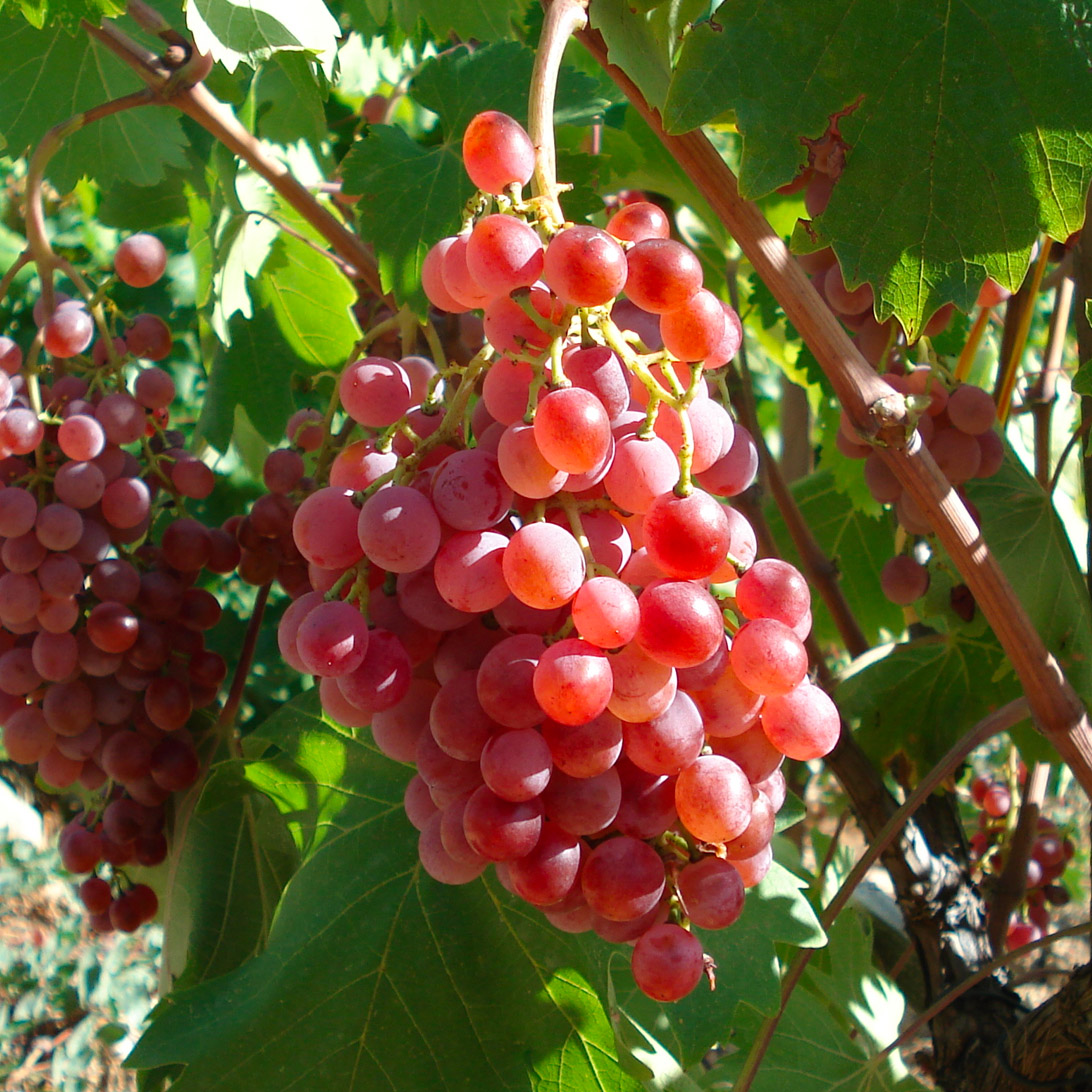
"The fact that Roditis is the most cultivated white variety and, at the same time, the basis for hundreds of "simple" and daily - or even less "simple"- white wines, has led to its characterization as a "humble" variety. However, in fact, it is no white variety, since the color of its berries peels is rosy. Also, it is not "humble", since, under certain conditions, it can offer remarkable and great wines. It is often watery and flabby, but the confinement of its unlimited productivity, the selection of mountain vineyards, the careful vinification and the stay of the wines for small intervals with their wine-lees are some of the key elements that convert the potential ugly to a prince! Thus, modern, high-quality Roditis has clear, lemon -and, depending on the area, mineral- aromas, light to moderate body and refreshing acidity, elements that give them "European" characteristics and flexibility. Despite its wine-growing sovereignty, it remains one of the most unexplored Greek varieties, as well as a tangible proof of the potential of modern Greek wines at every level. Because every anxious wine-lover who enjoys a bottle of wine, either as an aperitif or as an excellent companion of appetizers and not just dishes, will not only expand his wine horizons, but also will have made an extremely "smart" choice, selecting Roditis.